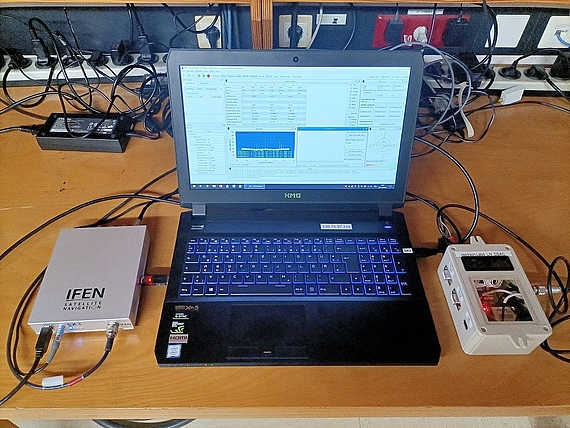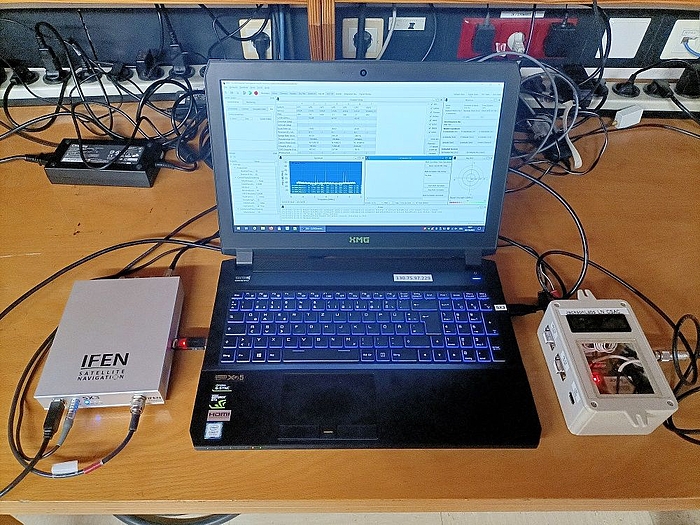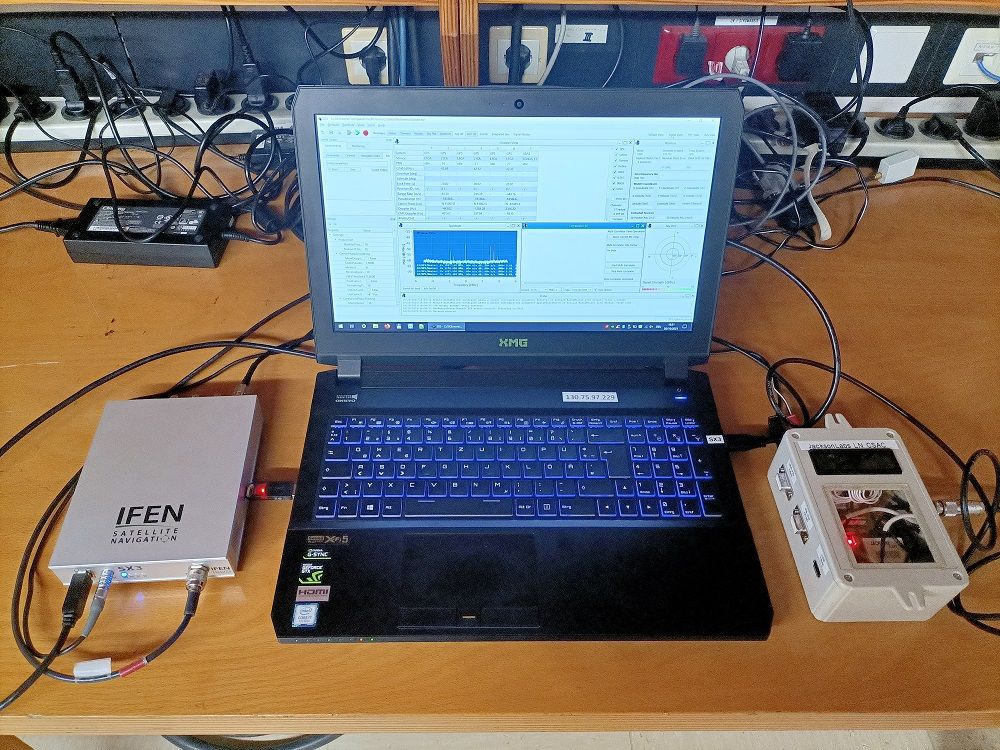FIRST: Fingerprinting, Integrity Monitoring and Receiver Signal Processing Using Miniature Atomic Clock Technology

| Led by: | Prof. Dr.-Ing. Steffen Schön |
| E-Mail: | lin@ife.uni-hannover.de |
| Team: | Qianwen Lin, M. Sc. |
| Year: | 2020 |
| Funding: | Bundesministerium für Wirtschaft und Energie (BMWi) |



In order to improve the performance of the determination of position, velocity and time by means of GNSS measurements, nowadays Chip Scale Atomic Clocks (MACs) are frequently used, which provide a highly stable frequency signal to the GNSS receiver. These also include so-called chip scale atomic clocks (CSACs), which provide the GNSS receiver with a highly stable frequency signal, which ultimately leads to an increase in the performance of the navigation solution.
In previous studies, CSACs are almost exclusively used with already preprocessed GNSS measurements (pseudo-ranges, Doppler measurements) and thus only for algorithmic improvement of the navigation solution. In this project, funded by the German Federal Ministry for Economic Affairs and Energy (BMWi), the influence of the receiver clock on the quality of signal processing in the receiver will therefore be investigated. For this purpose, the internal processing steps in a software receiver are to be adapted to the high frequency stability of the CSAC signal.
Further, the feasibility of fingerprinting with highly stable external atomic clocks under different dynamic conditions will be investigated, and additionally integrity measures for GNSS-based time transfer will be developed.




